It’s summer. Time to grab your swim suit and lounge out by the pool. There’s nothing more refreshing than dipping into a sparkling clean pool on a hot summers day. When you can’t make it to the beach, a swimming pool is the next best thing.
Pools require regular maintenance and upkeep. Checking chlorine levels and regular cleaning are essential to keeping a safe and clean swimming environment. But what about bees? Why the heck do bees always seem to cause trouble around pool areas?
You see, when bees interrupt your swim time, it’s usually because they are foraging for water. This has been especially true the past few years, because of the drought. Bees need water. Bees are attracted to water. If you have a pool in San Diego, you will likely have bees.
Ever been swimming along and suddenly you see a bee struggling in the water? It happens a lot. Lots of times people will fish out the bee and place it on the concrete to try to save it. Sometimes it works, sometimes not. Regardless if it survives, it’s always best to put them on a plant instead of the concrete. If you have ever stepped on a bee barefoot, you know why.
How about when you are suntanning next to a pool, and suddenly a bee decides to harass you? Why does this happen? It may be happening because they are attracted to the smell of your suntan lotion. Perhaps you are wearing perfume or are drinking a tall lemonade. Whatever the case, bees love the smell of sweet perfumes and citrus drinks.
The main concern for most people is the protection of their children. No one wants their kids to get stung or accidentally step on a bee. We get lots of calls from homeowners asking what can be done to solve the problem. Unfortunately there is nothing that a pest control company can really do about bees foraging, unless there is an actual swarm or hive.
So by now you are likely wondering, what can I do to stop bees from disrupting my pool time? It’s sad to say, but the truth is that there really isn’t a whole heck of a lot you can do. You can try to cover the pool when not in use. That may (or may not) work, depending on the pool cover. The most drastic measure would be to drain the pool…but that’s really no solution at all. Keeping citrus scents and perfumes away may help….but again, it may not.
The harsh reality of the situation is that it’s nearly impossible to “bee proof” an outdoor pool. The best practices are the following:
1. Stay vigilant about fishing out drowning bees with a net.
2. Sweep dead bees off of sidewalks surrounding the pool area regularly.
3. Refrain from citrus foods and fragrant perfumes.
Hopefully these suggestions will help you deal with the bee problem at your pool. If not, take comfort in the fact that nearly all pools have the same problem, for at least some period of time, each year.
Got a different way to alleviate foraging bees from a pool? We’d love to hear it. Share your knowledge below.
UPDATE: A week after this blog was published I came accross a news story online that offered an alternative solution to preventing bees from foraging in your pool.

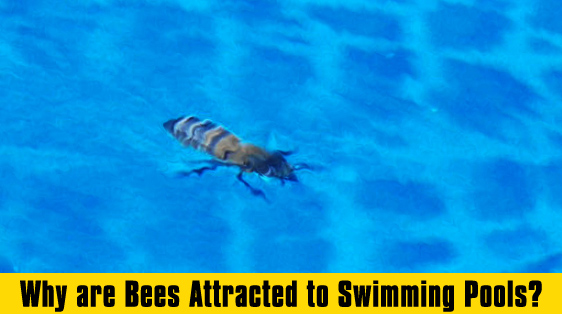
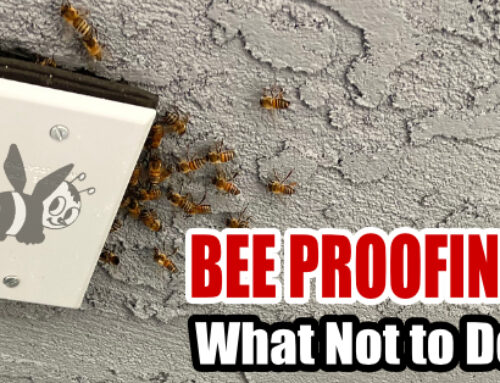
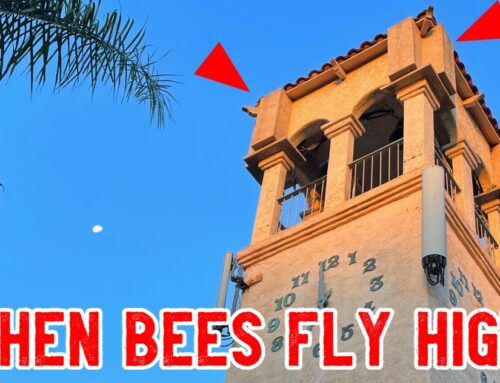
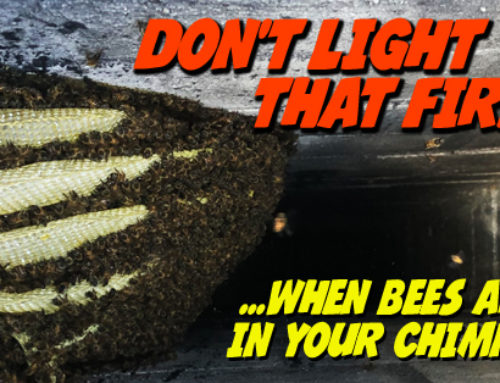
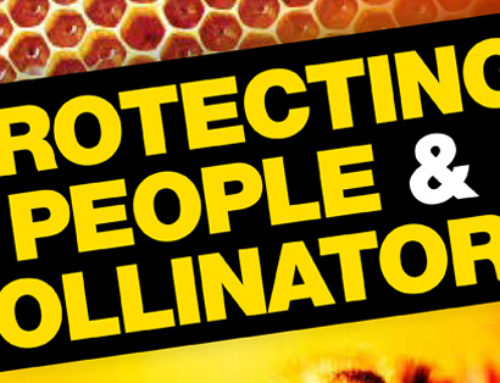
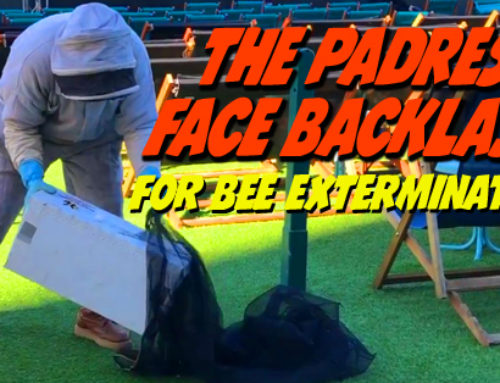

My daughter thinks she is going to move where tgere is no flowers and trees or bushes ,but she wants a pool and thinks no bees will come around . Is she right to think tgere will be no bees in New Jersey just because she has no flowers or bushes ,yet has a pool ??
Hi Shirley,
Not sure about the conditions bees face in New Jersey. Our company is only licensed in San Diego California. Here in southern California, if you have a pool, you will likely have bees foraging for water…with or without plants and flowers nearby. Try contacting a bee professional in your area to see if they can provide you with some local information and advice.
It only reached in 60s yet a whole swarm of honey bees covered my 27ft pool. I saved the queen and couple 100. Lost just as many . Why did they do that if it’s not hot yet???
Hi Elizabeth. We have also noticed an unusually high number of calls this spring. I’m not sure what part of the country you reside, but here is San Diego, we have seen record amounts of rainfall this year. It’s impossible to know exactly why there is an increase of bees (unless you happen to be an entomologist), but here is our best guess, in layman terms: More rain makes more flowers. More flowers means more pollen and nectar. More pollen and nectar means more bees.
I read that spraying peppermint oil and diffusing it around the pool will help. I know spraying peppermint oil helped keep a swarm from making our house a hive. I’m going to try it this Summer as I teach swim lessons and love bees too. Is it possible to make a more suited say bee pond for the bees?
Hi Nina. That’s interesting about the peppermint oil. We don’t use that product, but I know that several “Green” insecticides use peppermint oil, so that makes sense. Thanks for your feedback. With regards to adding a bee pond, we usually don’t recommend adding one. Most of the time the bees will end up foraging in both places, instead of moving from the pool to the pond.
I have found that lavender fabuloso keeps the bees and the wasps away from our pool.. I spray on all four corners and in 10 minutes were able to swim..
After a couple days back to back we don’t have to spray fabuloso anymore unless we find a straggler wasp then we spray again..
By the way white vinegar works for bees but it doesn’t work for wasps….
Once again it’s lavender fabuloso spray on all four corners of your yard and it will keep the wasps and bees away..
Thanks for the tip Jeanette!